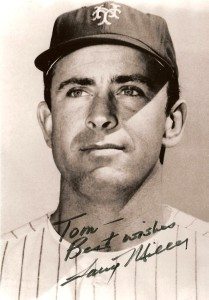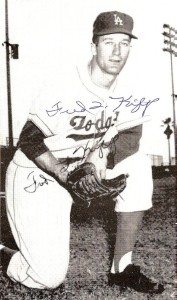
Back in 2001, former pitcher Larry Miller still threw strikes.
Verbal strikes, that is.
Miller didn’t sugar-coat his opinions when asked about hurling for two
Hall of Fame managers in a three-year career. Furthermore, Miller slung
a high, hard one at the 1960s Mets organization.
“I never got to know either Alston or Stengel as people,” Miller began. “As managers, they had similar skills as far as making proper strategic moves during a game. Neither spent much effort trying to connect with the players. My belief is that neither would be very successful managing today’s players who require and demand special considerations.”
When coach Wes Westrum took over the Mets following Stengel’s retirement, Miller felt that the new manager was doomed.
“Westrum took over a team still brimming with expansion players. The core of the ’69 Mets (Seaver, Ryan, Koosman, McGraw, etc.) were just coming into the organization as minor leaguers. The best manager in baseball at that time would have had difficulty improving the Mets record.
“The old saying ‘You can’t make chicken salad out of chicken s – – – ‘ applies here.”

